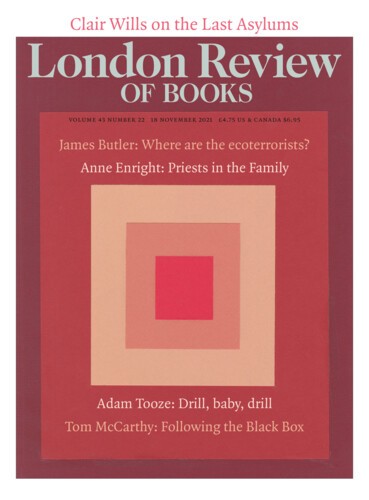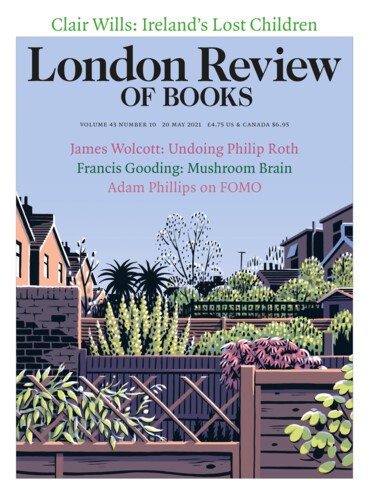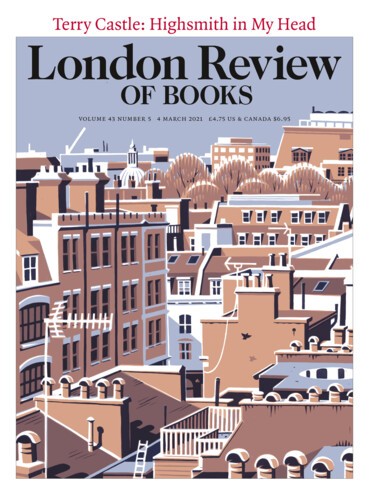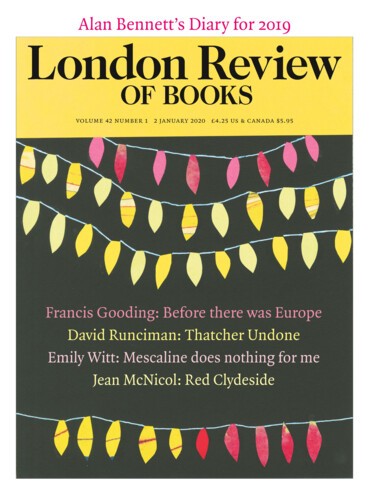Francis Gooding
Francis Gooding is a contributing editor at the LRB.
Climate Emergency
6 November 2021
From Its Myriad Tips: Mushroom Brain
Francis Gooding, 20 May 2021
Fungal mycelium is very good at finding the most economical route between points of interest. The mycologist Lynne Boddy once made a scale model of Britain out of soil, placing blocks of fungus-colonised wood at the points of the major cities; the blocks were sized proportionately to the places they represented. Mycelial networks quickly grew between the blocks: the web they created reproduced the pattern of the UK’s motorways (‘You could see the M5, M4, M1, M6’). Other researchers have set slime mould loose on tiny scale-models of Tokyo with food placed at the major hubs (in a single day they reproduced the form of the subway system) and on maps of Ikea (they found the exit, more efficiently than the scientists who set the task). Slime moulds are so good at this kind of puzzle that researchers are now using them to plan urban transport networks and fire-escape routes for large buildings.
G&Ts on the Veranda: The Science of Man
Francis Gooding, 4 March 2021
Franz Boas wasn’t in the least woolly-minded or anti-scientific. On the contrary, he was committed to the scientific methods in which he had been trained, and dedicated to the clear-eyed analysis of data. But what he had found was that the rigorous application of these principles to anthropological material proved, again and again, that history and culture were the final, critical variable when it came to human behaviour.
Hell Pigs: Before there was Europe
Francis Gooding, 2 January 2020
Deep inside the Bruniquel Cave, in southwestern France, there are a number of mysterious assemblages. Built out of broken and stacked stalactites, they form two circles, and half a dozen ‘raised structures’. Nearly four hundred stalactites, carefully snapped off, were used in making them. Uranium-series dating, which measures the decay of uranium isotopes, has established that...
Podcasts & Videos
Pirates of Madagascar
Francis Gooding and Thomas Jones
Francis Gooding joins Tom to discuss Pirate Enlightenment, David Graeber’s posthumously published study of 17th- and 18th-century piracy. Golden Age pirates maintained surprisingly egalitarian working...
Read anywhere with the London Review of Books app, available now from the App Store for Apple devices, Google Play for Android devices and Amazon for your Kindle Fire.
Sign up to our newsletter
For highlights from the latest issue, our archive and the blog, as well as news, events and exclusive promotions.




